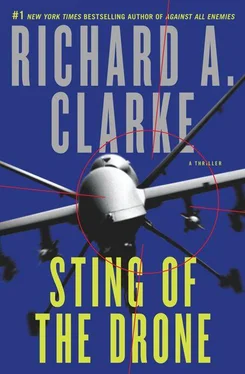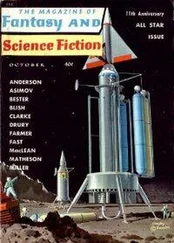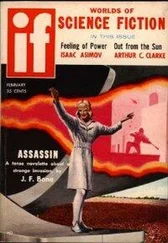Bahadur was beginning to think that perhaps Rashid Qazzani was right to take this contract from al Qaeda. They did need help, but not for everything. In the decade after 9/11 al Qaeda had gone underground in America. They had used good security procedures, cells in which most members knew only a few others. They were long-term sleepers who did nothing to attract attention. The Qazzanis would activate some of the networks, give them explosives, assign them targets, and leave before anything happened. For this simple task, they would get most of the special reserve fund that AQ Central had been building over the years, three hundred million euros.
“And they will all die for you?” Bahadur asked.
“No, most will not,” the older Arab admitted. “This is a new generation. They will not be suicides.” He lowered his head and his voice. “And they will want some money, maybe one million dollars each.”
Bahadur smiled. “That will be in addition to our fee. Unlike you, we do what we do for money, not for Allah.” Suiciders were erratic, too much trouble, he thought. People who worked for one million dollars would be more reliable. And if they died in the blast anyway, or later when they came for the money, then that million might be something he could keep personally.
“Very well,” the older Arab replied. “At least make zakat with some of the money.”
“We do, but we have our own charities.” Bahadur laughed.
The older Arab stared at him and then said, “I am told to offer you the names of some of our friends in the ISI, brothers who will assist you in fighting the drones. Some have quit the ISI, but still have connections; others are still on active service. We trust them. A few of them knew about Abbottabad.”
He handed Bahadur a small notebook, code names and contact procedures. “Those at the beginning are the ones in the U.S. The ones in red at the end are the Pakistanis, the ISI. Loss of these names will mean men die.”
Bahadur took the small green moleskin. “For us, this is business, but do not worry. We are very good at business.”
FRIDAY, AUGUST 14
DEGREES BISTRO
THE RITZ-CARLTON, GEORGETOWN
WASHINGTON, DC
She was already seated in the restaurant when Ray arrived, late. He had texted her to apologize that he was running behind schedule. He had left his car with the doorman, along with a big tip, and taken the big metal stairs, two at a time to the second floor. He worried she would take his tardiness as an insult. Instead, she seemed fully absorbed in her iPad, and a glass of Viognier. The bottle was on the table.
“So sorry. No excuses,” Ray began.
“No problem. I’m reading the new Alan Furst novel,” Sandra said, shutting down the iPad. “Hope you don’t mind I ordered the wine. I wanted something a little sharper than Chardonnay.” She poured him a glass. “Let me know what you think of it.”
He sipped the tangy white wine and remembered why he had hit it off with her so well when they first met at a U.S.-UK intelligence liaison conference in London. She did not defer to him in the least. She did not make a point of doing things to prove she was his professional equal, she knew she was and had entirely internalized that. “So does the Agency book you into the Ritz now?” he asked.
“Hell, no. I’ve just got so many Marriott points that I occasionally upgrade myself. The Agency had me in the Key Bridge over in Rosslyn, but this place is kind of funky. Red mood lights, high ceilings. Feels like a movie set from Batman or something. Big redbrick factory.”
“It was a giant trash incinerator building that they, ah, repurposed as a hotel,” Ray explained. “Hence the name of this restaurant, Degrees. It used to get very hot in here.”
“So, is it really getting very hot in here, in DC, for the drone program? You’re the big shot Washington insider,” Sandra said with a smile. “So maybe you can answer a question that has been floating around in my head as I try to fall asleep at night.”
“This doesn’t sound good,” Ray replied.
“No, really, it’s about work. It’s this: behind all the politicians posturing, why do you think so many regular Americans have a problem with drones? Because I just don’t get it. They’re just airplanes after all.”
“Well, look, they aren’t really just airplanes. They’re different. I think they are less likely to hit the wrong guy or create a big blast on the ground, but people see them as Flying Killer Robots,” Ray said. “And people have a deep fear of armed robots.”
“Well, yeah. Terminator . Who saw that movie and identified with the Schwarzenegger character? No one. We all wanted the human to beat him,” she said.
“Right and no one rooted for the Borg bots in Star Trek . They were terrifying and seemed unbeatable. There are a dozen or more movies over the decades, all of which have conditioned us to fear killer robots, and now you get told that the U.S. has Flying Killer Robots?” Ray was on a roll. “There are all sorts of legitimate concerns about our drone policy being counterproductive or precedent setting, but at root, for a lot of people, there is a subconscious fear of armed robots going crazy and killing humans.”
Sandra shook her head in a combination of disgust and disbelief. “Well, let me assure you that my drones do not have minds of their own. They’re not going to all gain consciousness one day, like in The Singularity, and start flying themselves and picking out their own targets.”
“Maybe not, but I happen to know DARPA is funding some initial work on unmanned fighter planes that would shoot down enemy fighter planes with no human in the loop. Also bombers that would seek and destroy enemy tanks and missiles. Not quite minds of their own, but closer,” Ray said, playing devil’s advocate.
“I’d have a real problem with eliminating the human in the loop,” Sandra replied.
Ray chuckled. “That’s because you’re that human who’s in the loop. You just want job protection.”
In an ever so delicate way, Sandra smiled and shot Raymond Bowman her middle finger.
Ray laughed. “Do we always have to talk about work?”
“You should talk,” Sandra replied. “Mr. Workaholic. Speaking of which, I heard you split up. I’m sorry. Permanent?”
Ray nodded affirmatively. “Afraid so, but it wasn’t just me who was more married to the job. She was always running off to refugee camps. First, it was the Horn of Africa, then Jordan. Last I heard from her she was in Chad. That’s where she was when she signed the divorce agreement. Almost a year now.”
“First year’s the worst, trust me,” she said. “Frankly, I am a workaholic and I admit it. It’s what gives me pleasure. So without having to worry about Josh, I am a much happier little spook.”
They were halfway through the main course when she realized they had emptied the bottle of white. She signaled to the waiter. “Can you bring us a bottle of the Papapietro?”
“Italian?” Ray asked.
“Yes, I am. Can’t you tell? Vittonelli. But the wine is from the Russian River. Sorry, I should have consulted you.”
“No, no. I defer to you. You seem to know about wine. I’m forty-three-years old and still into beer. Arrested development,” Ray replied.
“Shit. Are you really only forty-three? And now that Schwartz is retired you’re running the PEG? Maybe I’m the one with the arrested development,” she said, as the waiter brought the Pinot Noir.
“And you are an old lady at forty-five? Running the joint DOD-CIA coordination center for all drone flights? Pretty damn important job. Better than station chief in Tunis.”
Читать дальше












